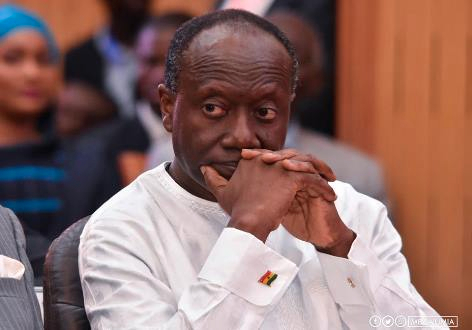Ghana to re-engage bondholders next week- Ken Ofori-Atta
The IMF board is due to meet on Friday to decide on a US$600 million disbursement from Ghana’s bailout programme.
- Advertisement -
Ghana will re-engage with its international bondholders from next week, Finance Minister Ken Ofori-Atta told Reuters, as the country seeks to build on the momentum of a deal last week to restructure US$5.4 billion of official creditor debt.
The country will seek to continue discussions after meeting holders of its around US$13 billion in outstanding Eurobonds in Marrakech in October, Ofori-Atta said in an interview on the sidelines of the World Economic Forum (WEF) annual meeting.
- Advertisement -
Officials will also travel to China on 23 January, he added. China and France co-chair Ghana’s Official Creditor Committee and the agreement reached with the committee was key to unlocking more funding from a US$3 billion International Monetary Fund (IMF) rescue loan.
- Advertisement -
Ghana is looking to restructure US$20 billion of external debt, which totalled about US$30 billion at the end of 2022, and has already restructured most local debt.
Restructuring negotiations last year were a “very difficult, painful process,” but Ghana has “built pretty good momentum”, Ofori-Atta said.
The IMF board is due to meet on Friday to decide on a US$600 million disbursement from Ghana’s bailout programme. Getting approval is usually seen as a formality once a meeting has been scheduled, and would unlock funding from other multilateral lenders.
- Advertisement -
The World Bank was expected to decide on US$550 million of “sorely needed” funding on 25 January, Ofori-Atta added.
Ghana is reworking its debts under the Common Framework, a restructuring process set up by the G20 countries during the COVID-19 pandemic that has been criticised for slow results.
Ofori-Atta said the 2022 macroeconomic situation had been “cage rattling”, but was improving, and he pointed to a rise in revenue and a decline in inflation. The latest data showed consumer inflation had slowed to 23.2% year-on-year in December compared to the more than 50% when the country tipped into default.
Meanwhile, growth was running at 3%, more than twice the IMF’s projected rate of 1.2%, Ofori-Atta said.
- Advertisement -


